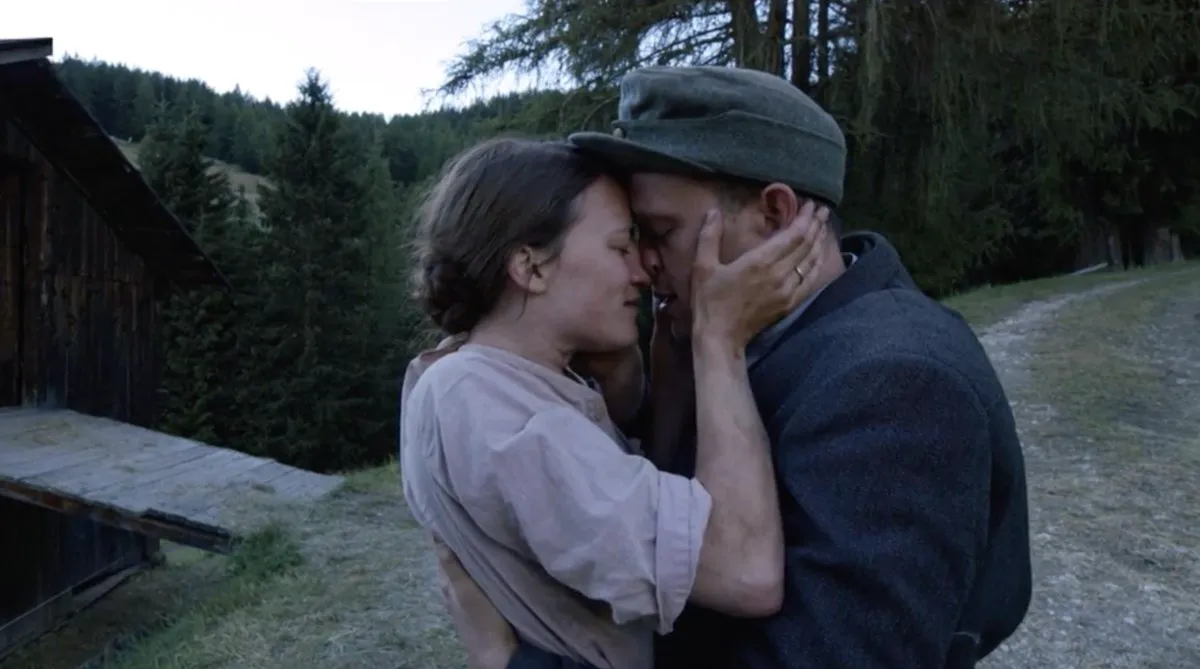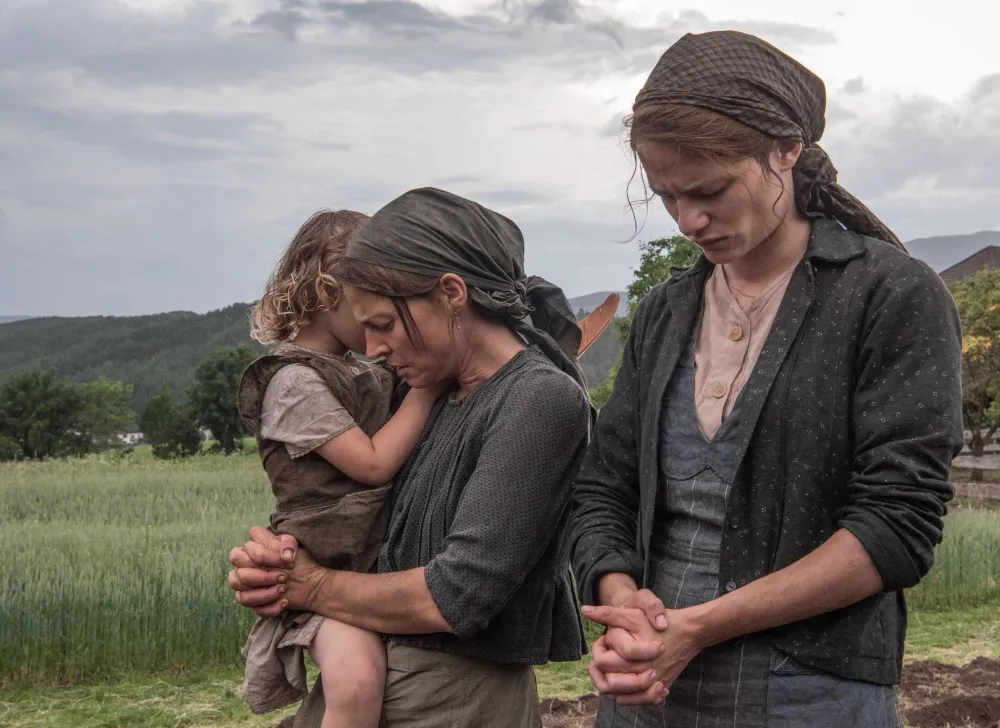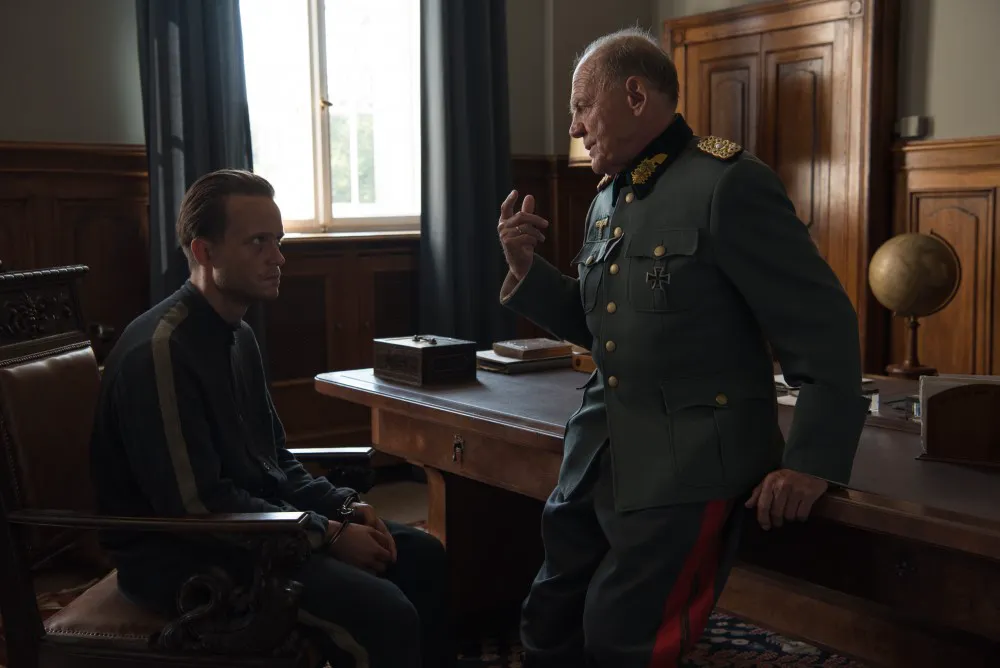A Quiet Heroism: The Anti-War Masterpiece of a Man Who Refused to Fight for the Third Reich
Austrian farmer Franz Jägerstätter (August Diehl) lives a peaceful life in the idyllic village of Radegund. He cherishes each day, grateful for his loving wife, who understands him without words, and his playful daughters. As World War II erupts, Franz is drafted and sent for training. However, before seeing any real combat, he returns home with a firm resolve: he will never fight for the Nazi regime, even if it costs him his life.

Terrence Malick’s latest film can be described as a return to form. However, this label risks undermining the director’s artistic exploration since “The Tree of Life.” Malick’s attempts to forge a new cinematic language—moving away from traditional narrative, capturing fleeting emotions, and exploring the connection between humanity and nature—have been perceived by some as a creative dead end. “A Hidden Life” sees Malick returning to more familiar territory, but it is far from a simple retread. While constrained by historical events, from the war’s onset to Jägerstätter’s execution, Malick’s signature style remains. What sets “A Hidden Life” apart is its overt focus on faith. God is not something the characters seek; rather, He seems to descend and choose Franz.

Faith and Defiance
The internal conflict between loyalty to Christian values and the instinct for survival echoes Martin Scorsese’s “Silence.” Both films depict the trials of faith during dark times. While Garfield’s character in “Silence” outwardly renounces his faith to survive, Jägerstätter remains steadfast in his Christian principles until his death. He recognizes the Third Reich not as a savior but as an aggressor, dividing the world into a simplistic dichotomy of good and evil. Undeterred by threats from neighbors, the potential ostracization of his family, arrest, and possible execution, he lives selflessly according to his beliefs, like a martyr in Christian history. It is no surprise that he was beatified in 2007.

The Power of One
One of the film’s most powerful scenes is the interrogation of Franz. He is confronted with the futility of his resistance, told that his actions will not stop the war or prevent the deaths of millions. Yet, his conscience compels him to stand firm, as it is the voice of God within him. His refusal to fight transforms into a profound lesson for society. This resonates with the closing lines of George Eliot’s “Middlemarch,” which appear in the film’s epilogue (and provide the film’s title): “…for the growing good of the world is partly dependent on unhistoric acts; and that things are not so ill with you and me as they might have been, is half owing to the number who lived faithfully a hidden life, and rest in unvisited tombs.”
A Poetic Tribute
Malick blends cinematic poetry with a spiritual narrative, working with material that aligns perfectly with his artistic sensibilities. Voiceovers, tactile imagery, and a fascination with nature help portray Jägerstätter’s idealized life without demonizing the Third Reich. He shifts the focus from the conflict between individual and society, using an interesting but potentially controversial device: English, the language of peace, contrasts with German, the language of aggression. In “A Hidden Life,” Malick emphasizes the poetic union of man and God, creating a sincere tribute to the Creator without resorting to heavy-handed biblical metaphors or parallels to the story of Job. Ultimately, he delivers an anti-war film devoid of violence, showcasing the transcendence of a life lived in conscious pacifism rather than blind aggression.